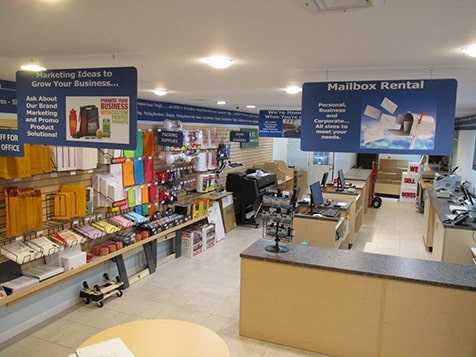The No.1 factor that stops anyone from start a business it is the risk and especially the fear of not knowing how to handle it.
In fact, when you think of start a small business It is a reality that you put many things at risk, from your money to your family relationships and there is never a lack of endless questions that make you doubt and postpone your project.
Sadly not knowing how to manage risk makes many good business projects die before being born.
Given this, 2 positions usually arise: those who ignore the risk factor’s and they go blindly to start a project without planning and secondly those who do not take action and decide not to do anything because they prefer to avoid them. Both are certainly wrong because they do not lead to anything positive.
So while risk is natural in the entrepreneurial process, it is also true that you must be aware of what the Most common risks you will face on the road to starting a business and how you can minimize them.
1. Fear of Risk
The first thing you should be very clear about is that build a business comes with risks that you will have to deal with all the time. There will always be unforeseen events or situations beyond your control that you will have to learn to solve.
Risk is something natural that will accompany you throughout the entire entrepreneurial adventure and the most important thing is not to avoid it but to learn to identify and control it through proper planning.
2. Risk due to changes in the environment
You must be clear that globalization and communications make our environment change rapidly. That means what works today will not necessarily work 2 years from now. Competition changes, customers change, the economy changes. Therefore, you must learn to change and do it quickly. You must be an entrepreneur who reads, learns and constantly updates to be able to keep your business afloat.
3. Risk of Not Knowing the Business
Many entrepreneurs feel insecure about the idea of start your business for the very fact that they do not know the operation of the business thoroughly. They have a vague idea of what they want to do and the enthusiasm but they don’t have all the answers.
What to do? Well, as simple as it sounds. You must inform yourself, document yourself, consult and become a expert in the business you want to start. I am not talking about being an expert in technical details (as you supply this with adequate personnel) but in the operational details of it.
4. Risk of Losing Your Money
Perhaps this is one of the biggest common fears. Not knowing if you have the financial capacity to carry out the business and therefore lose your money. This can happen in the same way regardless the size of your business As much risk runs who invests a thousand dollars as who invests one hundred thousand.
And the only smart way there is to minimize this risk is taking pencil and calculator in hand to draw up a budget. Always consider an investment budget, a monthly expense budget, as well as a sales projection as part of your planning.
These 3 exercises will allow you to know how much money you need to start, how much to maintain the business and how much money will return. You must work your budget in the most realistic way possible to be able to determine well in advance the future of your business.
5. What to do if there are no customers or no sales?
The next risk factor that we can all face is the fact of opening the doors of the business and that there are not interested clients or that there is not enough turnover to generate income.
Of course this can make anyone’s hair stand on end. However, this risk is also manageable. You must first carry out a basic market study before start your business. This will allow you to measure its potential based on prices and the variety of products you want to market as well as discover the main interests that your market may have.
Now, the main reason that I have seen why entrepreneurs do not do a market study is not because they do not know how to do it or because they cannot learn but because they are lazy to do it.
6. What if the location of the premises is not good?
Choosing a business premises is a decision that must be carefully analyzed. Remember that a nice place or on a busy street is not guarantee that the business will be successful. I have known of many cases in which the place is excellent and the location is also excellent, except that things do not work because you have a product or a service that is focused on another market, or because your prices are too high for the type. consumer.
Thus, you do not necessarily need a commercial premises to open your business and to do so, you must have carried out a market study to help you know that your company will be accepted with pleasure and will be attractive to people in the sector. (see point 5).
7. Risks Derived by Competition
What if the competition is very strong or if it is unfair? Well, I have to tell you that except for monopolies, all companies in the world have competition and the vast majority have to fight unfair competitors. This is another risk to live with (but not die).
First, it is desirable to develop a leadership culture where you are the one who establishes the rules of the game. You must observe your competition and know what they do without depending on their movements for your own decisions. This is a common mistake that many entrepreneurs make.
Another serious mistake is wanting to compete only by lowering prices because there are many more intelligent ways to compete that can work for you. The secret then is not to be intimidated or pressured. Much less react to the first provocation because this game leads many companies to failure. If your numbers are in order and your goals are clear, you can compete with promotions, good service and speed, putting your competitors in trouble.
8. The Risk of Not Managing Your Company Well
Of all the internal risk factors that exist, this is one of the most problems that can create a company. And it is the fact of not having a good administration. Clutter, light shopping, mismanagement of assets, and even poor staffing all contribute to things getting out of hand.
Hence, it is extremely important to establish a commitment to order from the beginning by delegating who will be in charge of “everything” in the company. And, if you are not the best administrator, then you should seek the support of someone who takes charge of this extremely important function so that your company is born and grows healthy internally.
It is unfortunate to see how companies with great potential fail because of the folly of their owners to want to control everything, when they do not have the powers and the preparation to manage your business orderly, wasting money and undermining finances.
Risk is Opportunity
As good businessman, then you should know that the risk and its consequences will accompany you from before opening the doors of your business and throughout your entrepreneurial experience.
Risks will never disappear, they are only reduced and controlled with preparation, planning and firm decisions made on time. And even with all this, there will always be stages in which things will not go according to plan and that is when it is appropriate to carefully analyze the strategies and if necessary, change the course.
Finally, you must see risk as something positive that, contrary to limiting yourself, allows you to see more acutely the enormous opportunities that are presented to you.
Plus tips for entrepreneurs:



























